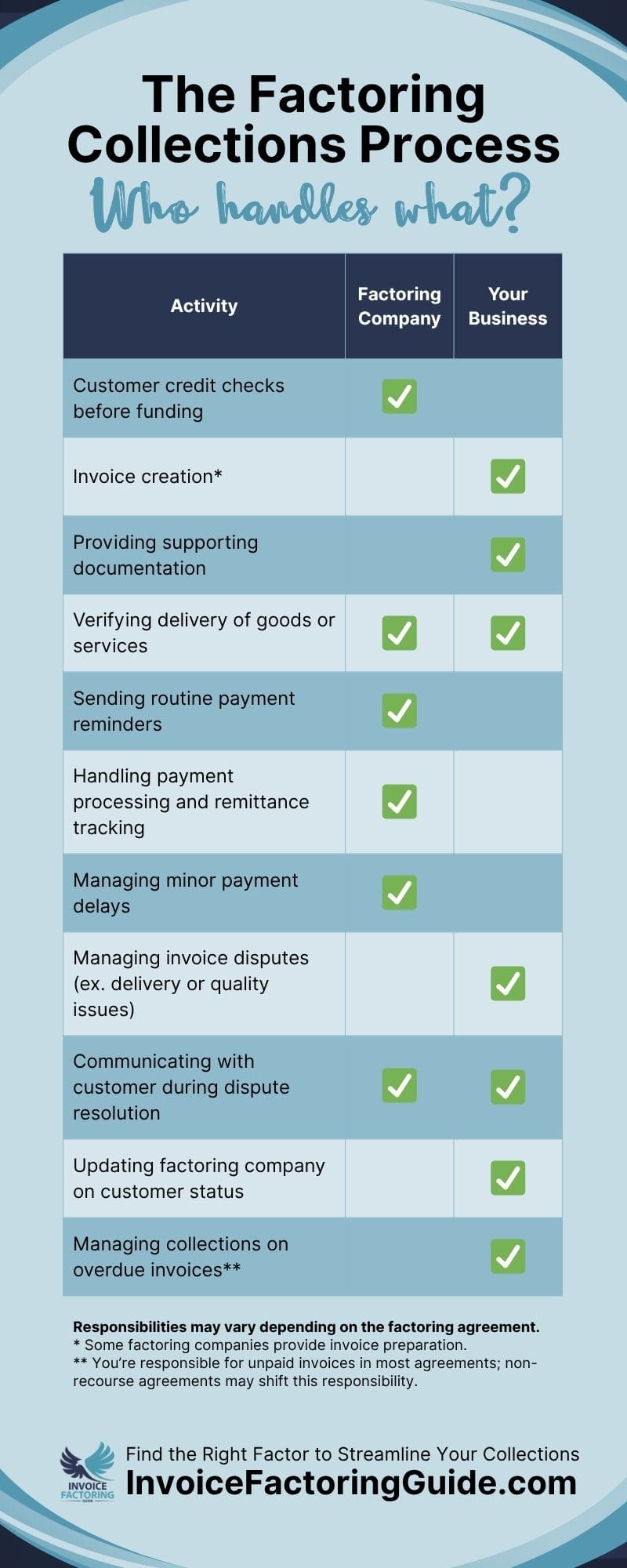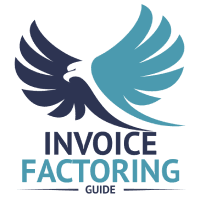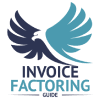
The average midsized business wastes 14 hours per week chasing invoices, according to Intuit. Thankfully, invoice factoring can give you that time back. Even though most businesses leverage it to free up working capital, it can be a lot like outsourcing collections. Give us a few minutes, and we’ll walk you through the factoring collections process and business and factor roles, so you can set yourself up for a smooth experience.
Collections Challenges Factoring Companies Help Solve
Managing accounts receivable can place a considerable strain on your internal resources. Following up on payments, maintaining customer relationships, and ensuring steady cash flow all require time and attention, especially when clients pay slowly or inconsistently. That happens more often than you might think, with around half of all B2B invoices remaining unpaid on their due date, according to Atradius.
Factoring companies provide structured support in this area, helping businesses overcome some of the most common challenges tied to collections.
Delayed Payments from Customers
Even with clear terms in place, many businesses face regular delays in payment. Factoring firms help mitigate the impact.
- Predictable Access to Capital: Rather than waiting weeks or months for payment, your business receives payment shortly after invoicing, typically within 24 hours of approval.
- Timely, Professional Follow-Up: Factoring providers manage payment reminders and routine communication, helping to encourage on-time payment while maintaining professionalism.
Internal Time Constraints
Collections can consume valuable staff hours, particularly as your receivables grow.
- Reduced Administrative Workload: By outsourcing routine invoice follow-up, you and your internal team can remain focused on high-priority business activities.
- Simplified Receivables Management: Factoring firms often provide online portals and reporting tools that let you track collections activity in real time.
Maintaining Positive Customer Relationships
Directly handling payment issues can introduce tension into otherwise strong client relationships. Factoring provides a buffer.
- Third-Party Communication: The factoring company handles follow-ups, allowing your team to maintain its role as the service provider rather than the payment enforcer.
- Consistent, Courteous Approach: Reputable factoring firms prioritize professionalism in all customer interactions. Communication in factoring reinforces your company’s positive image.
High-Volume Collections
As your business scales, the complexity of tracking and collecting on numerous invoices increases.
- Structured Collections Process: Factoring introduces standardized procedures that reduce the likelihood of missed payments or inconsistent outreach.
- Enhanced Oversight and Visibility: Many factoring companies offer reporting dashboards so you can monitor receivables status and customer payment behavior.
Collections Strategies Used by Factoring Companies
When you work with a factoring company, you are gaining the support of a structured, professional collections process. These firms bring consistency, expertise, and technology to the table, all designed to help your business maintain steady cash flow without compromising customer relationships.
Pre-Funding Due Diligence
Before approving invoices for funding, most factoring companies take proactive steps to minimize risk.
- Customer Credit Checks: Customer credit and factoring success are closely intertwined. Factoring companies evaluate your customer creditworthiness and don’t dwell on your company’s credit score. This step helps ensure you are working with clients who have a solid history of paying their invoices.
- Invoice Verification: Many firms confirm that the goods or services have been delivered and accepted before releasing funds. The invoice validation process reduces the likelihood of disputes down the line.
Clear and Simple Payment Processes
Streamlining how your customers pay is key to reducing friction and accelerating cash flow.
- Branded or Neutral Remittance Instructions: Factoring companies typically provide specific payment instructions for each invoice. In many cases, these can reflect your business name to preserve continuity for your customers.
- Digital Payment Gateways: Many factoring firms support electronic payment options such as ACH, wire transfers, or online portals, which help eliminate delays tied to mailed checks or manual processing.
Routine and Professional Follow-Up
Once an invoice is submitted and funded, the factoring company takes over routine collections tasks.
- Automated Reminders and Courtesy Notices: These are typically sent ahead of the due date and shortly after it passes to keep invoices top of mind for your customers.
- Customer Service-Oriented Outreach: Reputable factoring companies frame their communications as helpful reminders rather than pressure tactics. This approach helps protect your client relationships while ensuring accountability.
Responsive Communication with Your Team
Although the factoring company handles collections, your business remains informed and involved when needed.
- Transparent Status Updates: Online dashboards or regular reports keep you updated on the status of each invoice.
- Escalation Protocols: If a payment issue arises, such as a customer disputing an invoice, the factoring company will loop you in to resolve it efficiently.
Integration with Your Existing Systems
For businesses with growing or complex operations, many factoring providers offer tools that integrate with accounting platforms to allow for automated reporting and syncing. This can reduce errors, eliminate redundant data entry, and make collection activities easier to monitor and reconcile.
Your Collections Responsibilities in Factoring Agreements

Factoring companies offer valuable support in collections, but your business still plays a critical role. Factoring contracts are designed to clearly outline who handles what, especially when it comes to managing payment disputes and delays. Understanding your responsibilities up front helps protect your funding and keeps the process running smoothly. Let’s take a look at the core areas where your business typically remains involved.
Invoice Generation and Documentation
Factoring begins with a clean, verifiable invoice, and that usually starts on your end.
- Issuing Accurate Invoices: Your business is typically responsible for generating the invoice once goods or services are delivered. This includes clearly stating payment terms and providing the factoring company’s remittance instructions.
- Including Supporting Materials: Signed delivery receipts, service confirmations, and purchase orders may be required. These documents are critical for both payment delay management and dispute resolution in collections.
- Invoice Creation Support (Sometimes): Some factoring companies will prepare invoices for you, particularly if they offer integration with your accounting platform. This is more common in higher-volume relationships or with businesses seeking comprehensive support, although you may also see it when a factor specializes in a specific industry, such as trucking.
Managing Payment Disputes
Factoring companies handle standard follow-up and reminders, but they do not resolve issues that call your products or services into question.
- Resolving Customer Concerns: If a customer disputes an invoice, for example, by claiming late delivery, defective products, or incomplete service, your business is expected to step in. Managing payment disputes remains your responsibility, even after the invoice has been factored.
- Providing Timely Updates: When you’re in the process of resolving an issue with a customer, communicating that status to the factoring company is essential. Lack of transparency can lead to complications with future funding.
Supporting the Factoring Company’s Process
A successful collections strategy relies on accurate information and alignment between both parties.
- Verification and Communication: You may be asked to confirm delivery or clarify customer account details. This step supports both the factoring company’s internal risk controls and the broader process of payment delay management.
- Consistency with Agreed Terms: Most factoring contracts include stipulations about how collections are to be handled, including when and how your business should step in. Sticking to these guidelines helps prevent disputes between your business and the factoring partner.
Understanding the Boundaries of Factoring Contracts and Collections

Factoring is a partnership, but it does not transfer every collection responsibility.
- You Retain Control Over Customer Relationships: While the factoring company may follow up on payments, you are still the service provider. Your role becomes especially important if escalation is needed.
- You May Need to Intervene: If a customer continues to delay or refuses to pay for reasons outside the factor’s control, the situation typically falls back to something we’ll explore in more detail in just a moment.
How Non-Paying Customers Are Handled in Factoring
Even with solid invoicing practices and professional follow-up, some customers simply do not pay. The structure of your factoring contract determines what happens if this occurs.
Recourse vs. Non-Recourse Factoring
Most factoring companies offer two general types of agreements: recourse and non-recourse. Each handles non-payment differently.
- Recourse Factoring: Under a recourse agreement, your business ultimately bears the risk if the customer fails to pay. If an invoice remains unpaid after a set period, such as 90 days, the factoring company can require you to repurchase the invoice or replace it with another of equal value, depending on the terms of your factoring contract.
- Non-Recourse Factoring: In non-recourse arrangements, the factoring company assumes the risk of non-payment, but only under specific conditions, such as if the customer becomes insolvent or declares bankruptcy. Disputes over service quality or delivery still fall back on your business to resolve.
Most small to midsize businesses use recourse factoring, as it is more widely available and tends to offer lower fees. However, non-recourse options may be worth considering if you work with a high volume of large clients or operate in risk-sensitive industries.
The Invoice Return Process
When an invoice goes unpaid in a recourse agreement, it is usually returned to your business for follow-up. This process is detailed in your factoring contract and collections terms.
- Invoice Buy-Back or Chargeback: The factoring company will debit your reserve account or request payment for the uncollected invoice.
- Ongoing Communication: In many cases, the factoring company continues to assist with status updates, even if the invoice is formally returned to you.
Next Steps After a Returned Invoice
Once responsibility reverts to your business, you have a few options depending on the situation.
- Customer Follow-Up: If the customer is still operating and the dispute is unresolved, you may be able to work directly with them to secure payment.
- Working with a Collections Agency: If efforts to collect are unsuccessful, your business can escalate the issue by hiring a third-party collections agency or debt recovery specialist.
- Legal Options: For high-value invoices, legal action may be appropriate, especially if the customer is uncooperative or shows signs of fraud.
Best Practices for Preventing Escalation
Factoring companies play a key role in reducing the likelihood of non-payment, but your business can take additional steps to protect itself.
- Vet Customers Before Onboarding: Even if the factoring company performs credit checks, it helps to set your own criteria for client acceptance.
- Maintain Clear Service Documentation: Signed agreements, delivery confirmations, and customer approvals all help streamline dispute resolution in collections.
- Understand Your Contract Terms: Each factoring contract defines how and when responsibility shifts. Knowing these details in advance allows you to plan accordingly.
Benefits of Leveraging Factoring for Collections Management
In many ways, leveraging factoring is similar to outsourcing collections; benefits extend far beyond your immediate cash injection.
Improved Cash Flow Stability
Factoring’s impact on cash flow is multifaceted. By minimizing cash flow issues, it ensures that slow-paying customers no longer interfere with your ability to operate.
- Steady Working Capital: Factoring gives your business immediate access to invoice funds, allowing you to reinvest in operations, take on new clients, or cover expenses without delay.
- Fewer Disruptions: By smoothing out the timing of payments, factoring reduces the peaks and valleys that often cause financial strain.
Reduced Administrative Burden
Collections can be time-consuming. Factoring removes much of that work from your plate, thus reducing administrative burden.
- Streamlined Accounts Receivable: Your team no longer needs to handle routine payment reminders or track down late checks.
- Clear Division of Responsibilities: With the factoring company managing the follow-up, your staff can focus on service delivery, sales, and strategy.
Better Customer Experience
When collections are handled professionally and consistently, your clients notice.
- Polished Communication: Factoring companies approach collections with diplomacy, using structured outreach that reflects positively on your brand.
- Fewer Internal Missteps: Automated systems and standardized processes reduce the chances of duplicate reminders or billing confusion.
Lower Stress in Payment Management
When collections are unpredictable, managing cash flow becomes a daily concern. Factoring provides stress reduction in collections by taking that pressure off.
- Predictability in Receivables: With funding tied to invoice submission rather than payment, your business can plan with more confidence.
- Minimized Follow-Up Anxiety: There is peace of mind in knowing that professional collections efforts are already underway without you needing to step in unless truly necessary.
Scalable Support for Growing Businesses
As volume increases, so does the complexity of receivables. Factoring gives you room to grow without stretching your infrastructure.
- Flexible Volume Handling: Whether you have ten invoices or one hundred, the process remains consistent.
- Built-in Support Structure: The factoring company becomes an extension of your financial operations, adapting alongside your growth.
Find the Right Factor to Streamline Your Collections
If you’d like to streamline your collections process and get paid faster, invoice factoring can help. Shorten your search for the right partner and let us match you with a vetted factoring company. Claim your free rate quote to get started.
FAQs on Factoring Collections
Do factoring and debt recovery services work together?
In a sense, yes. Invoices that are newer (typically generated 90 days or less ago) would be handled by your factor. Handling non-paying customers would fall on your collection agency.
Do factoring companies and collections agencies do the same thing?
No. Factoring companies purchase invoices at a discount and provide the business with most of the invoice’s value upfront, then take over collections. They work with newer invoices, typically those less than 90 days old, and employ customer-friendly methods to maintain relationships. Conversely, collections agencies are hired when a debt is old and deemed “uncollectable.” It’s often a last resort to help the ensure the business receives at least some of the money it is owed.
Will my factor drop an invoice if there are payment delays?
Generally speaking, no. Some collections challenges in factoring are expected. Factoring agreements outline what happens if payment is not made by the due date. Your factoring contract terms will likely give you a few days or weeks past the due date to resolve the issue with your customer.
How does the collections process work when I factor my invoices?
Once your invoice is funded, the factoring company typically manages follow-up and payment reminders. They handle routine collections professionally, keeping you updated on progress while maintaining a positive customer experience.
Who contacts my customers about payment if I use invoice factoring?
The factoring company usually contacts your customers directly for payment. Their communications are courteous and businesslike, often identifying the factoring firm as your financial partner or acting under your name, depending on your agreement.
What happens if a customer doesn’t pay a factored invoice?
In most cases, the unpaid invoice is returned to your business. You may need to repurchase it or replace it, depending on your contract. If the agreement is non-recourse and the customer went bankrupt, the factoring company may absorb the loss.
What are my responsibilities in the factoring collections process?
You’re responsible for creating accurate invoices, resolving service-related disputes, and communicating any issues promptly. While the factoring company manages standard collections, you may need to step in if a customer disputes the invoice or payment is unusually delayed.
Do factoring companies handle disputes and late payments for me?
They manage payment reminders and routine delays, but not service or delivery disputes. If a customer claims they didn’t receive what they paid for, your business is responsible for resolving the issue before payment can be collected.

About Invoice Factoring Guide
Related Insights
Get an instant funding estimate
Results are estimates based on the calculated rate and the total invoice amount provided.
Actual rates may vary.
Request a Factoring Rate Quote
PREFER TO TALK? Call us at 1-844-887-0300










